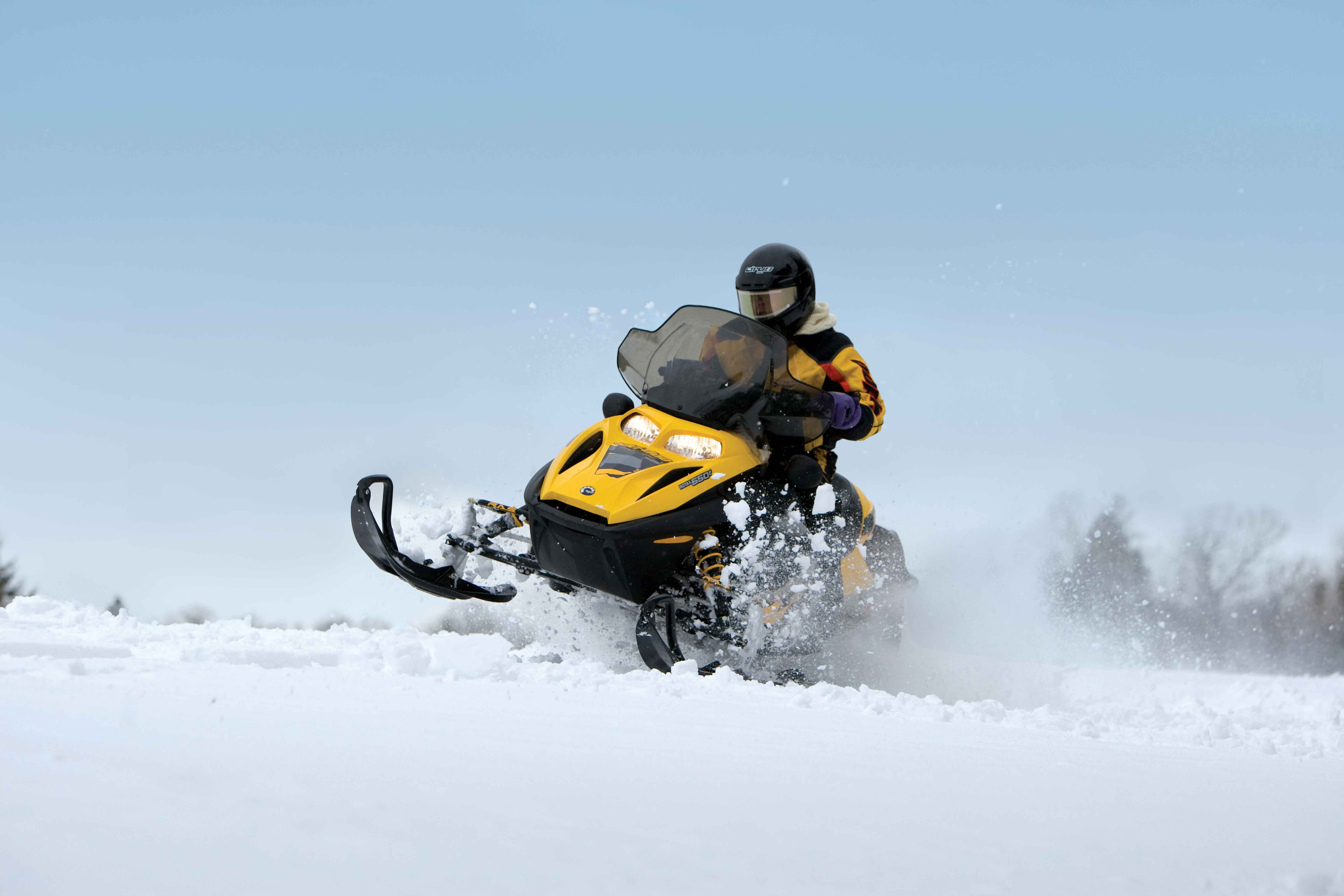Climate Change Impacts on Snowmobiling in Vermont
Nov. 28th 2018Climate change impacts on the amount and quality of snow could affect snow-dependent winter recreational activities, causing winter recreationists to adapt their behaviors. One such winter activity is snowmobiling, which requires very specific climatic conditions, and thus will likely be especially sensitive to climate change. Snowmobiling is an important winter activity in Vermont, and a reduction in snowmobiling could cause impacts to Vermont’s economy and culture.
A study by researchers in the Park Studies Laboratory at the University of Vermont (published in a special issue of the Journal of Park and Recreation Administration, with funding from the McIntire-Stennis Forestry Research Program and the Lintilhac Foundation) investigated if and how snowmobilers might adjust the amount of snowmobiling they do in response to climatic changes that may impact snowmobiling. This study looked to provide managers with insight into current and potential future snowmobiler behavioral changes to climate change and the ranges of each. Results suggest that snowmobiling is already declining in Vermont and that with climate change impacts, declines could become more considerable.
Studies have already found that the amount of precipitation falling as snow has decreased in New England. Additionally, the northeastern U.S. has experienced a trend in the reduction of the number of snow-covered days per winter. Snowmobiling completely relies on natural snowfall due to the long distances of snowmobile trails. This means that snowmaking technologies cannot be used to combat climate change impacts as is done for skiing or other winter activities.
Researchers surveyed snowmobilers in Vermont using an online survey that integrated recent past and future manifestations of climate change into a questionnaire to examine the impacts on snowmobiling in Vermont. The survey was distributed to members of the Vermont Association of Snow Travelers (VAST). Four different topic areas were included in the survey: The characteristics of snowmobilers, snowmobile use, perceptions of snowmobile experience, and current or future climate change related adaptations.
Generally, most respondents reported they would decrease snowmobiling in the future in response to reduced snowmobiling conditions caused by climate change. More specifically, results showed that many respondents have already noticed decreasing conditions for snowmobiling and these respondents have reduced the amount of snowmobiling they do in response. The most obvious, predicted climate changes, such as decreased depth of snow and shorter winters, were the ones noticed by a majority of these snowmobilers.
Overall, findings show that snowmobilers in Vermont are already adapting their snowmobiling habits in relation to the changing climate. Many of the factors that respondents indicated make for high-quality snowmobiling are climate-related, thus adaptations in snowmobiling will likely become more noticeable as climate change impacts progress.
This research has implications for associations, such as VAST, who rely on snowmobiler memberships. With a reduction in snowmobiling, organizations like VAST could see a decline in snowmobiler memberships, which may cause these associations to act to combat these effects. Furthermore, declines in snowmobiling may lead to increases in other winter recreation activities, which could further impact the economy and tourism in Vermont.
 ecoNEWS VT
ecoNEWS VT